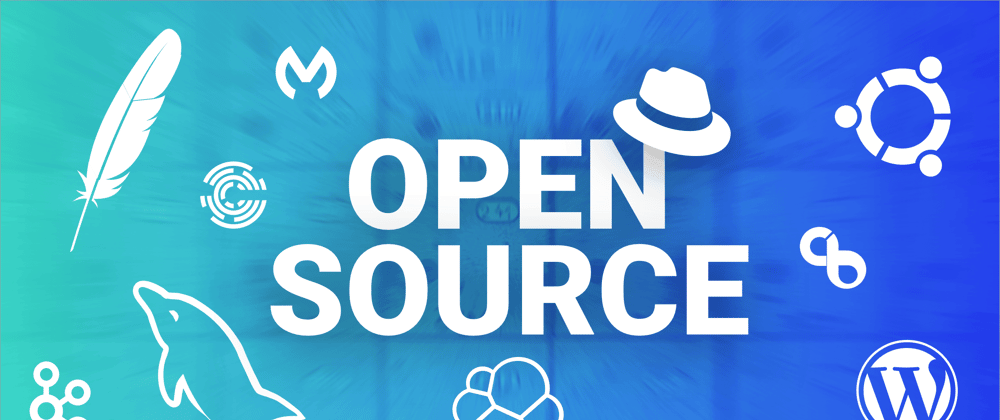by author Michiel Mulders
Open source software has become a mainstream concept for companies. Often, software receives much more attention when a company makes it publicly available. It means that developers can contribute to the software and become ambassadors for the product.
Most frequently, open source companies generate revenue from training, certifications, consulting or support services, or additional paid products or managed services.
This article takes a look at ten popular open source products and the companies behind them. On top of that, we also look at how these companies sustain their business via open source software.
1. MySQL Databases
MySQL databases were developed in 1995 while looking for a more performant and efficient data storage mechanism. In 2000, MySQL was released under the GNU General Public License (GPL). MySQL AB, the company that owns the copyright of MySQL, actively works on improving the product and offering support.
Nowadays, we can’t imagine an internet without MySQL databases. It’s one of the most popular databases in the world. The popularity received a significant boost when it got introduced together with the LAMP stack. It’s a four-layer stack that forms the foundations for hosting websites and running web applications:
- Linux: Operating system
- Apache: Web server software
- MySQL: Database layer for data storage and querying data
- PHP: Final layer to build websites and web applications.
Lastly, MySQL AB makes money through their enterprise offering for companies who need to scale and can’t afford to fail. They offer different types of service level agreements to assist companies with operating and maintaining MySQL databases.
2. Apache HTTP Server
We’ve already introduced Apache as part of the LAMP stack, which also includes MySQL. The Apache HTTP Server software exists since 1996. Some say that over 67% of all web servers in the world make use of Apache HTTP Server. Though, its popularity is declining as alternatives are coming out that demand some part of the market share, such as Nginx.
The software itself has been developed by an open community of developers who also take care of its maintenance. Note that the Apache Foundation doesn’t make any money. They receive an income from donations and events to cover their day-to-day operations. Their core goal is to spread the use of Open Source software. Yet, developers who work on the project often consult with companies to fix critical issues or solve complex use cases. As you would have guessed, companies are more than happy to pay for experts to solve their problems.
3. WordPress by Automattic
Based in San Fransisco California, Automattic manages the popular open source content management system (CMS) WordPress. According to Kinsta.com, WordPress powers 40% of all websites on the internet. Remarkably, WordPress’s share has continued to grow since 2018 from 31%.
On top of that, Automattic also runs the website WordPress.com which allows you to host a free CMS instance. Moreover, Automattic also manages two popular plugins for WordPress:
- WooCommerce: Helps you building a webshop
- BuddyPress: Helps you building a social network site
WordPress makes money by selling advertising space on the free websites they offer to users. On top of that, they offer upgrades for websites that require more storage space, a custom domain name, or better performance. Users have to pay for these upgrades, and that’s how WordPress earns revenue.
4. Ubuntu by Canonical
Canonical is the company behind perhaps the most popular Linux distribution Ubuntu. They have their headquarters in London and employ more than 500 employees. They launched the popular Linux distribution in 2004.
But why did they develop Ubuntu? From Ubuntu.com, we can read the following story. “Linux was already established in 2004, but it was fragmented into proprietary and unsupported community editions, and free software was not a part of everyday life for most computer users. That’s when Mark Shuttleworth gathered a small team of Debian developers who together founded Canonical and set out to create an easy-to-use Linux desktop called Ubuntu.”
Their goal is to provide everyone in the world with free access to software to create new ideas and innovate. On top of that, they want to cut costs for companies who use Ubuntu at scale. Canonical offers services such as support, management, maintenance, and operations — the revenue from these services funds their operations and the continuous development of Ubuntu.
5. MuleSoft Data Integration Platform
MuleSoft, also based in San Fransisco, offers a data integration platform that allows companies to connect data, applications, and devices across different environments. It’s an open source product that got acquired by Salesforce in 2018 for $6.5 billion.
MuleSoft has several revenue streams for their Open Source product:
- Subscriptions
- Consulting services and employee training programs
- Technical support services
- Certification exams
6. Red Hat
Red Hat has been founded in 1993 and is well-known for its enterprise OS called Red Hat Enterprise Linux (RHEL). At the end of 2018, Red Hat got acquired by IBM for a whopping $34 billion.
In 2018, an article from TechRepublic titled “Here’s Red Hat’s open secret on how to make $3B selling free stuff”. The company believes that you can no longer win with a closed-source platform. Moreover, they make a lot of money from their open source product through various revenue streams similar to MuleSoft:
- Subscription-based customer service
- Training sessions
- Integration services
- Consulting services
Observability for Production Apps
Debugging your JavaScript apps in production may be challenging and time-consuming. Asayer is a frontend monitoring tool that replays everything your users do and shows how your app behaves and renders for every issue. It’s like having your browser’s inspector open while looking over your user’s shoulder.
Asayer helps to quickly get to the root cause by reproducing issues as if they happened in your own browser. It also monitors your frontend performance by capturing key metrics such as page load time, memory consumption and slow network requests.
Happy debugging, for modern frontend teams - Start monitoring your web app for free.
7. Chef
Chef has become a popular tool for writing system configuration recipes to spin up large-scale systems effortlessly. In other words, they eliminate a lot of manual work for DevOps teams by offering automated configuration management and even integrations with popular security tools, giving birth to DevSecOps.
They offer Chef Community which hosts thousands of freely available configuration templates to spin up resources. Besides that, they offer training services and a whole set of enterprise solutions that focus on compliance, infrastructure management, and application delivery.
8. Jenkins by CloudBees
CloudBees is the company behind the popular continuous integration pipeline software Jenkins. Jenkins’ goal is to speed up application delivery by automating testing, deployment, and many other development-related processes.
CloudBees mainly makes money by offering additional DevOps products but also through support for Jenkins.
9. Apache Kafka by Confluent
Apache Kafka is a framework implementation of a software bus using stream-processing. It is an open-source software platform developed by the Apache Software Foundation written in Scala and Java. The project aims to provide a unified, high-throughput, low-latency platform for handling real-time data feeds.
Apache Kafka offers a high-throughput platform to handle real-time data feeds, such as processing financial transactions or monitoring shipments. The technology is most popular among companies dealing with large data streams and require fast processing times.
Confluent’s business model relies on offering a commercially supported version of Apache Kafka.
10. ElasticSearch by Elastic NV
Elastic NV is the company behind many products, such as Elasticsearch, Kibana, and Logstash. These three products together form the ELK stack. Their most popular product Elasticsearch is a distributed, multitenant-capable full-text search engine, which also offers an API to query data. Elasticsearch is used by many large-scale organizations, such as Netflix, Tinder, and Wikipedia, for its performant searching capabilities.
Most of Elastic’s revenue comes from their public cloud managed service, which is available on major cloud providers. However, companies can always decide to host Elasticsearch and Elastic’s other products themselves.
If you want to learn more about open source companies, take a look at Databricks, Hashicorp, Cloudera, or Docker.








Top comments (3)
This is a decent list but doesn't scratch the surface of some of the wonderful open-source projects available such as Envoy, Gatsby, Hasura, Kong, Kubernetes and Prometheus.
The open-source community is truly thriving and I think this is in part due to the success of Hacktoberfest
Thanks for your insight Kyle, there are definitely a lot of great open-source projects. It's incredible how our industry is able to move forward based on projects like these. Thanks for sharing the names of some wonderful ones!
Just a small point of clarification. MySQL AB went defunct in 2008 when they were acquired by Sun Microsystems. After that, Sun Microsystems was acquired by Oracle. Because the original MySQL staff did not like Oracle, they forked the codebase and became MariaDB, which is where that development from the original authors now takes place.